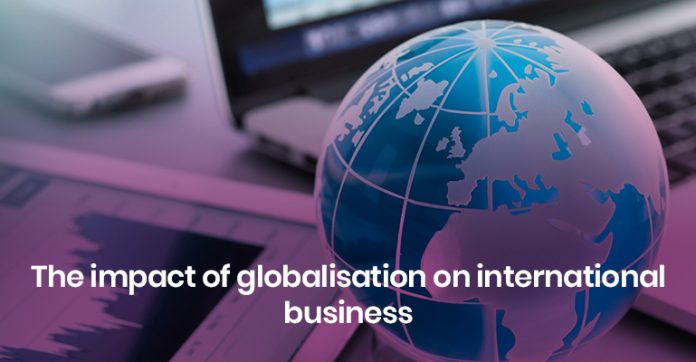Globalization is a multifaceted phenomenon that profoundly influences how businesses operate, and economies develop. In this in-depth exploration, we examine the various ways globalization affects international markets, competition, the allocation of resources, and the overarching pattern of economic activity worldwide.
Effect on Labor Markets and Job Creation
Globalization has a dual impact on labor markets. On one hand, it creates new job opportunities as businesses expand and enter new markets. On the other hand, it can lead to job displacement due to automation and offshoring. The following points highlight these dynamics:
- Job Creation: Expansion into new markets increases labor demand across diverse industries.
- Offshoring: Companies relocating certain operations overseas can impact domestic job markets.
- Automation: Technological advancements can reduce the overall demand for human labor, especially in manufacturing sectors.
Influence on Economic Growth and Development
Globalization has been instrumental in driving economic growth for many countries, particularly emerging economies that utilize their comparative advantage to attract foreign investment:
- Foreign Direct Investment (FDI): Increased investment opportunities due to open markets have led to a surge in FDI, fostering economic growth.
- Technology Transfer: Developing countries benefit from the transfer of technology and know-how from more developed nations.
- Competitive Markets: Global competition encourages enterprises to innovate and improve, leading to higher productivity and growth.
The effects of globalization on business and the economy
Globalization has had a profound impact on businesses and economies worldwide. It refers to the increasing interconnectedness and interdependence of countries through the exchange of goods, services, information, and ideas. The effects of globalization on business and the economy are multifaceted and can be observed in various aspects:
- Market Access and Expansion:
Increased Market Opportunities: Globalization gives businesses access to a more extensive customer base. Companies can tap into new markets and expand their reach beyond national borders.
Competition: Globalization intensifies competition as businesses compete with local and international companies. It can drive innovation and efficiency.
2. Supply Chain Integration:
Global Supply Chains: Businesses often source raw materials and components from different countries, leading to complex global supply chains. It can increase efficiency but also make companies vulnerable to disruptions in any part of the world.
3. Technology Transfer and Innovation:
Knowledge Exchange: Globalization facilitates the exchange of technology and knowledge across borders. Companies can adopt and adapt innovations worldwide, increasing productivity and competitiveness.
4. Labor Mobility:
Migration of Talent: Globalization allows for the movement of skilled labor across borders. Companies can benefit from a diverse and talented workforce, contributing to innovation and expertise in various fields.
5. Cultural Influence:
Cultural Integration: Globalization brings people from different cultures closer together. Businesses must understand and navigate cultural differences in their operations and marketing strategies.
6. Government Policies and Regulations:
Trade Agreements: Governments play a crucial role in shaping globalization through trade agreements. These agreements can open up new markets or impose restrictions that impact businesses.
7. Financial Flows:
Capital Mobility: Globalization allows for the free flow of capital across borders, enabling businesses to access funding from international markets. However, it also makes economies more susceptible to financial crises.
8. Environmental Impact:
Resource Utilization: Globalization can lead to increased consumption of resources, impacting the environment. Efforts to address sustainability and environmental concerns have become more critical in the global business landscape.
9. Income Inequality:
Disparities: While globalization can contribute to economic growth, it has also been associated with increased income inequality within and between countries. Not all segments of the population may benefit equally from globalization.
10. Political and Social Implications:
Political Instability: Globalization can contribute to political and social tensions, especially if certain groups feel marginalized or economic benefits are unevenly distributed.
In summary, globalization has reshaped the business landscape, offering opportunities for growth and innovation while presenting challenges that require strategic adaptation and responsible management. The impacts of globalization on business and the economy are dynamic and continue to evolve as the world becomes more interconnected.



